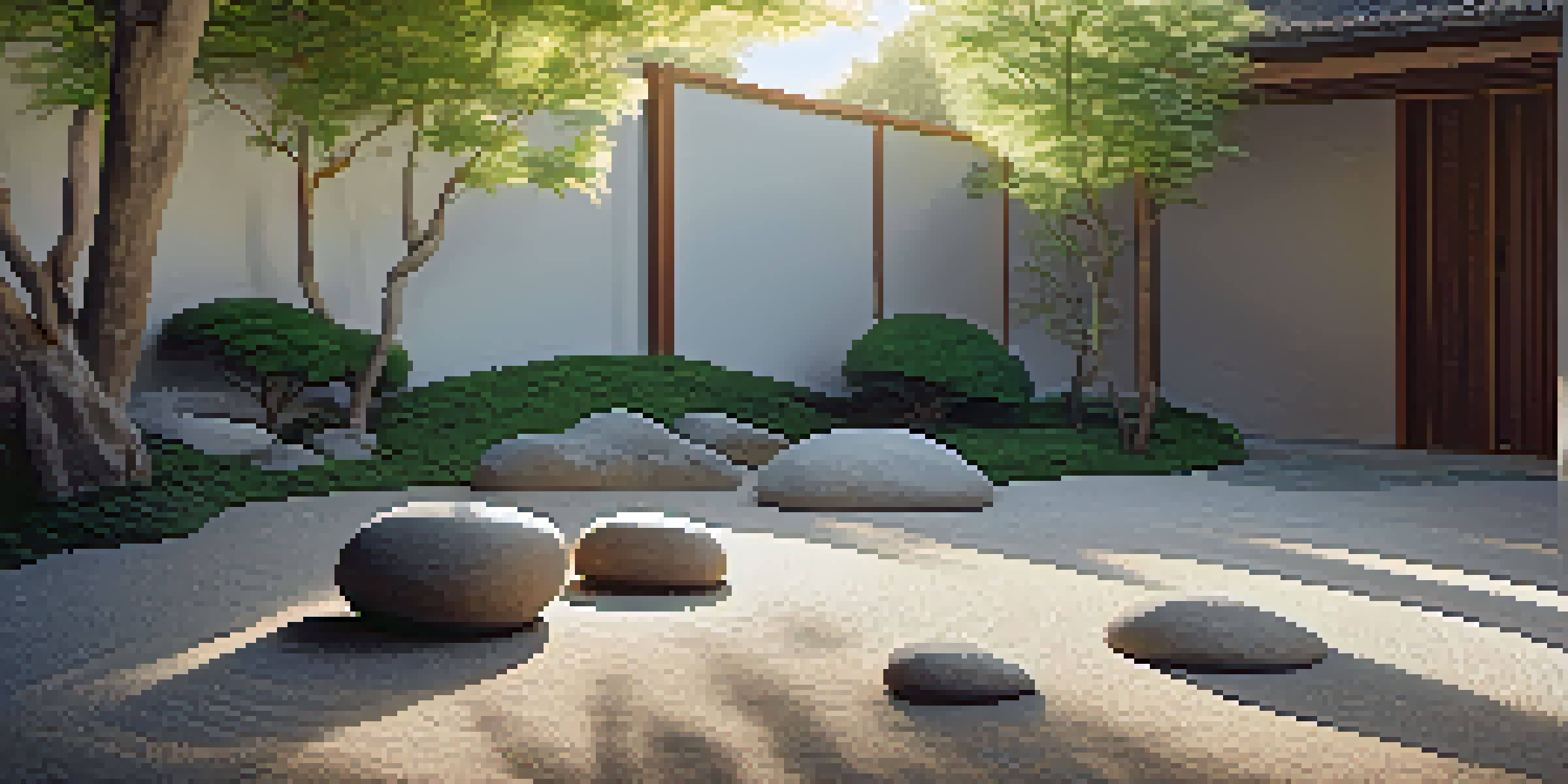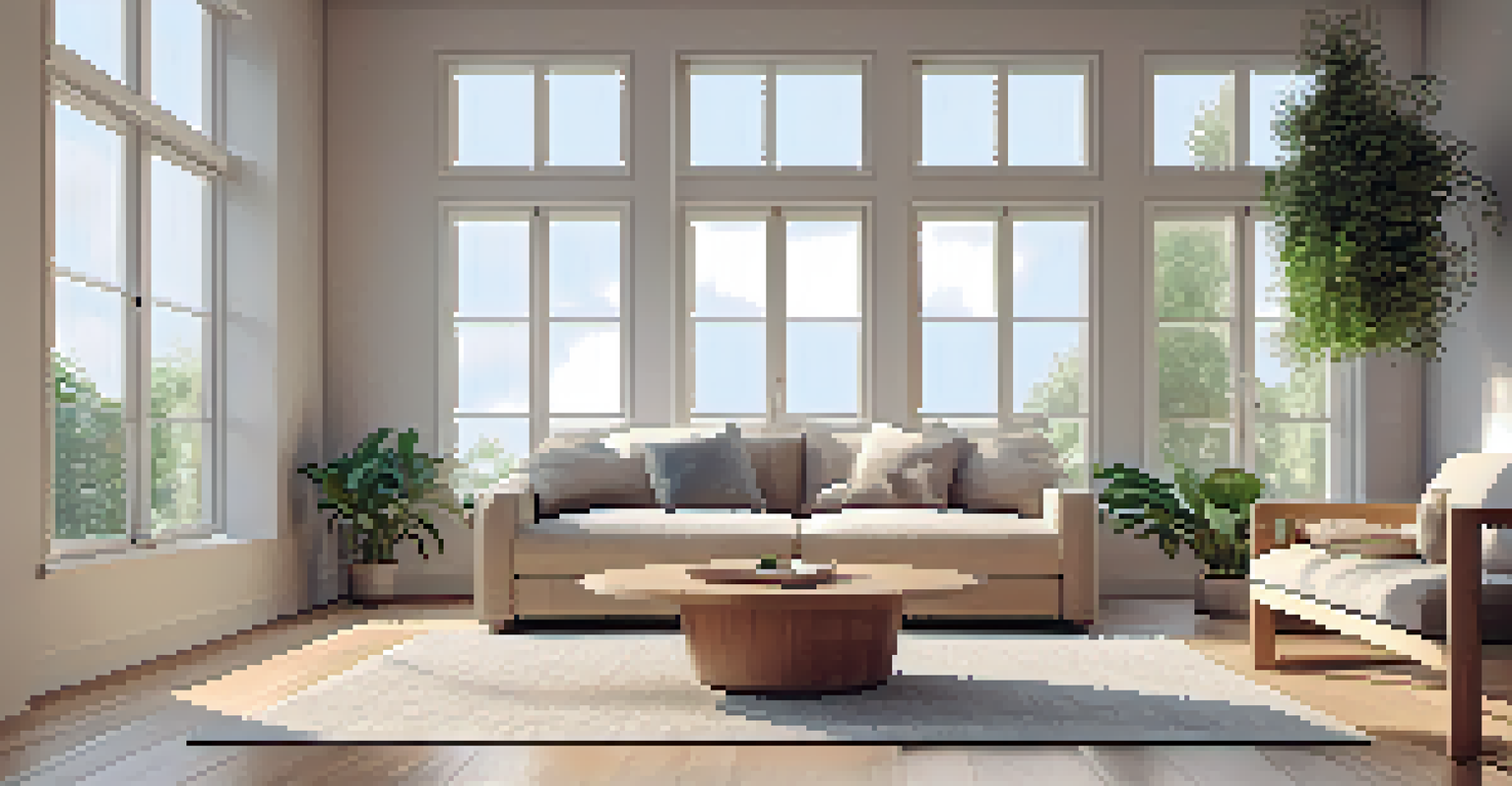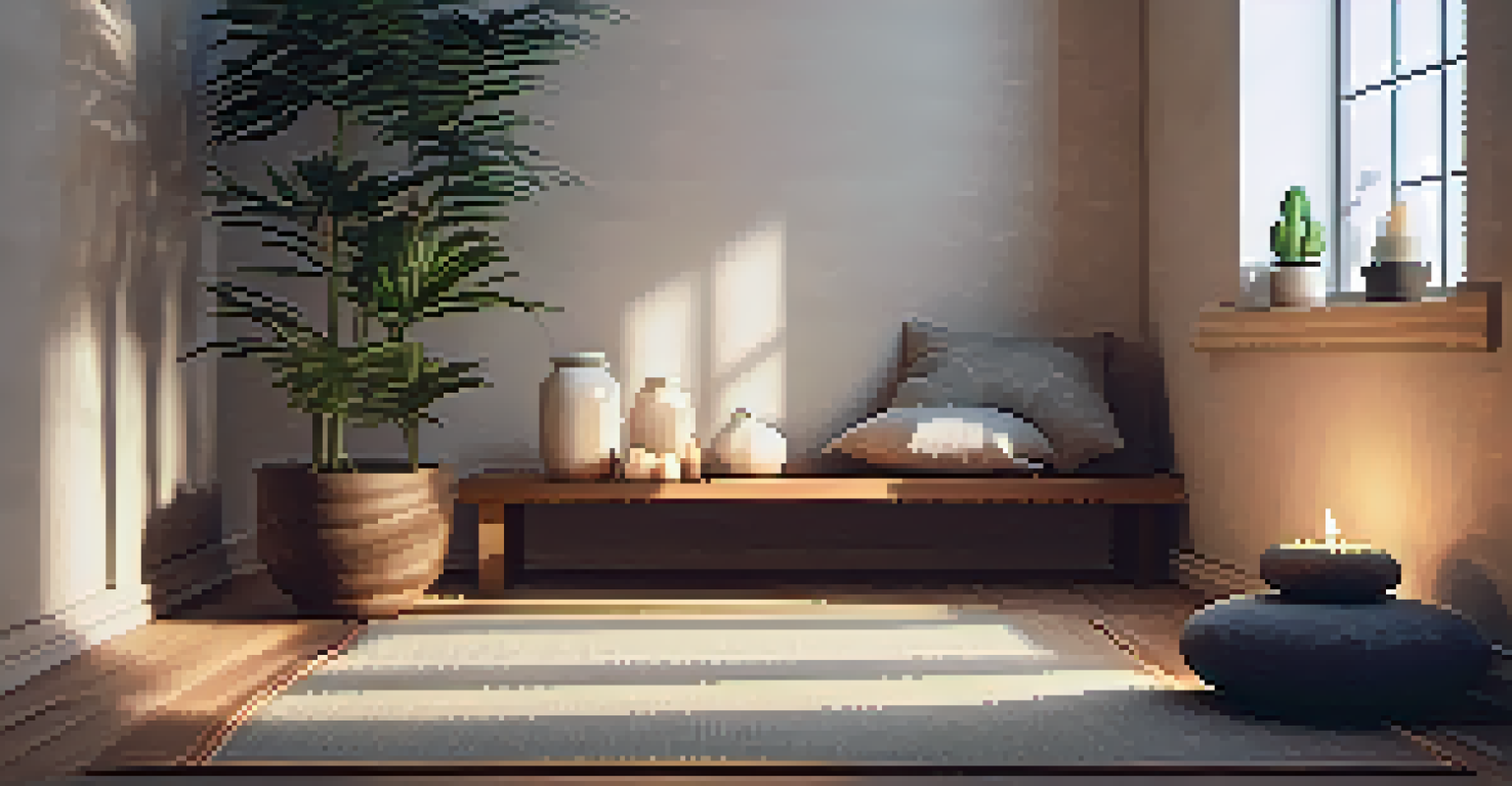The Connection Between Minimalism and Zen Philosophy

Understanding Minimalism: More Than Just Decluttering
Minimalism is often perceived as merely removing clutter from our spaces. However, it encompasses a mindset that prioritizes simplicity and intentionality in our lives. By focusing on what truly matters, minimalism encourages us to let go of distractions and excess that weigh us down.
The ability to simplify means to eliminate the unnecessary so that the necessary may speak.
At its core, minimalism is about making space for experiences and relationships rather than possessions. Imagine walking into a room that exudes calmness because it's free from unnecessary items. This clarity can foster a greater sense of peace and purpose.
Ultimately, minimalism is a journey towards understanding our values and making conscious choices. It's not just about having less; it's about making room for more of what enriches our lives.
What is Zen Philosophy and Its Core Principles?
Zen philosophy, rooted in Buddhism, emphasizes mindfulness and living in the present moment. It teaches that true contentment comes from within, rather than through external possessions or achievements. This focus on inner peace aligns closely with the principles of minimalism.

Central to Zen is the practice of meditation, which helps individuals cultivate awareness and clarity. By quieting the mind, we can better appreciate the simplicity of life and recognize the beauty in everyday moments. This practice encourages us to detach from material desires and find fulfillment in simplicity.
Minimalism is a Mindset Shift
Minimalism goes beyond decluttering; it encourages a focus on intentional living and prioritizing what truly matters.
Zen philosophy invites us to engage fully with our surroundings, much like minimalism encourages us to curate our environments. Both paths lead to a more intentional and harmonious way of living.
The Intersection of Minimalism and Zen: A Shared Vision
Both minimalism and Zen philosophy advocate for a lifestyle that values simplicity and mindfulness. They encourage individuals to strip away the unnecessary, allowing for a deeper connection to self and surroundings. This shared vision creates a foundation for a tranquil and purposeful life.
Simplicity is the ultimate sophistication.
Imagine a serene Zen garden, where each element has a purpose and contributes to the overall harmony. This imagery mirrors the minimalist approach to design and living, where every item serves a function and enhances well-being. Both philosophies promote a sense of calm and clarity.
By merging these two practices, we can create environments that not only look aesthetically pleasing but also nurture our mental and emotional health. This synthesis allows us to live more intentionally and mindfully.
Practicing Minimalism: Tips for a Zen-Inspired Space
Creating a Zen-inspired space involves intentional decluttering and thoughtful design. Start by assessing your belongings and asking yourself if each item brings you joy or serves a purpose. This aligns perfectly with the minimalist approach of keeping only what is necessary.
Consider using neutral colors and natural materials to evoke a sense of tranquility in your environment. Soft lighting, plants, and open spaces can help create a calming atmosphere. These elements reflect the essence of Zen philosophy, which values simplicity and nature.
Zen and Minimalism Align
Both Zen philosophy and minimalism promote simplicity and mindfulness, fostering a deeper connection to ourselves and our environments.
Lastly, incorporate mindfulness practices into your daily routine. Whether through meditation or simply taking a moment to appreciate your surroundings, these habits can enhance your living space and promote a sense of peace.
The Benefits of Minimalism and Zen Living
Embracing minimalism and Zen philosophy can lead to significant benefits for mental health and overall well-being. By reducing clutter and distractions, we can experience lower stress levels and increased focus. This clarity allows us to engage more fully in our lives.
Additionally, both practices encourage self-reflection and personal growth. By aligning with our values and priorities, we create a life that feels authentic and fulfilling. This alignment fosters resilience and adaptability in the face of challenges.
Ultimately, minimalism and Zen living offer pathways to greater happiness and satisfaction. By simplifying our lives, we create space for joy, connection, and purpose.
Challenges in Adopting Minimalism and Zen Principles
While the benefits of minimalism and Zen philosophy are appealing, the journey is not without challenges. Many people struggle with letting go of possessions due to emotional attachments or societal pressures. Recognizing these hurdles is the first step toward overcoming them.
Additionally, modern life often promotes consumerism and excess, making it difficult to embrace a minimalist mindset. The constant influx of advertisements and social media can create a desire for more, distracting us from the simplicity that minimalism offers.
Personalize Your Minimalist Journey
Embracing minimalism and Zen is a unique journey for everyone, encouraging personal reflection and the curation of spaces that resonate with individual values.
However, with patience and commitment, individuals can gradually shift their perspectives. By focusing on small, manageable changes, we can cultivate a more minimalist and Zen-inspired lifestyle.
Finding Your Balance: Personalizing Minimalism and Zen
Every individual's journey toward minimalism and Zen is unique. It's important to personalize these principles to fit your lifestyle and values. Start by identifying what brings you joy and fulfillment, then curate your space and habits accordingly.
Consider journaling your thoughts and experiences as you navigate this journey. This practice can provide insight into your motivations and help clarify your goals. Reflecting on your progress can also be incredibly motivating.

Remember, there is no one-size-fits-all approach. Embrace the process and allow yourself to explore different aspects of minimalism and Zen, discovering what resonates with you as you work toward a balanced life.